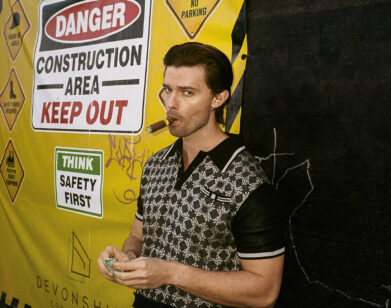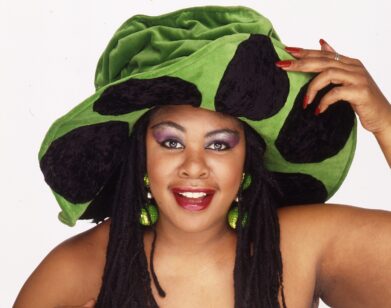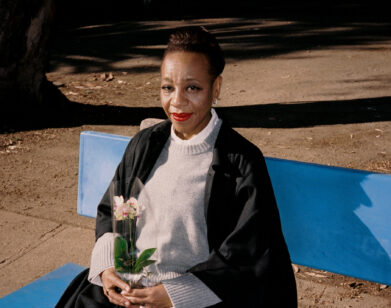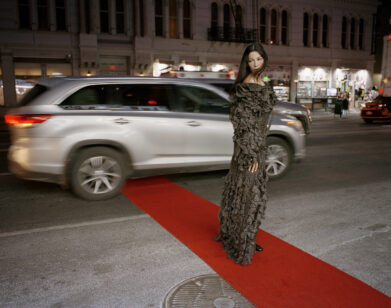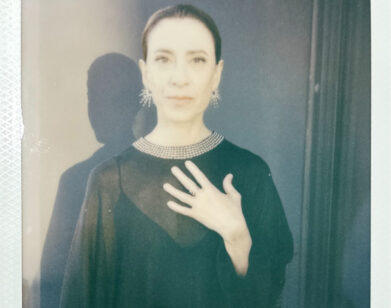The Order of Steven Knight
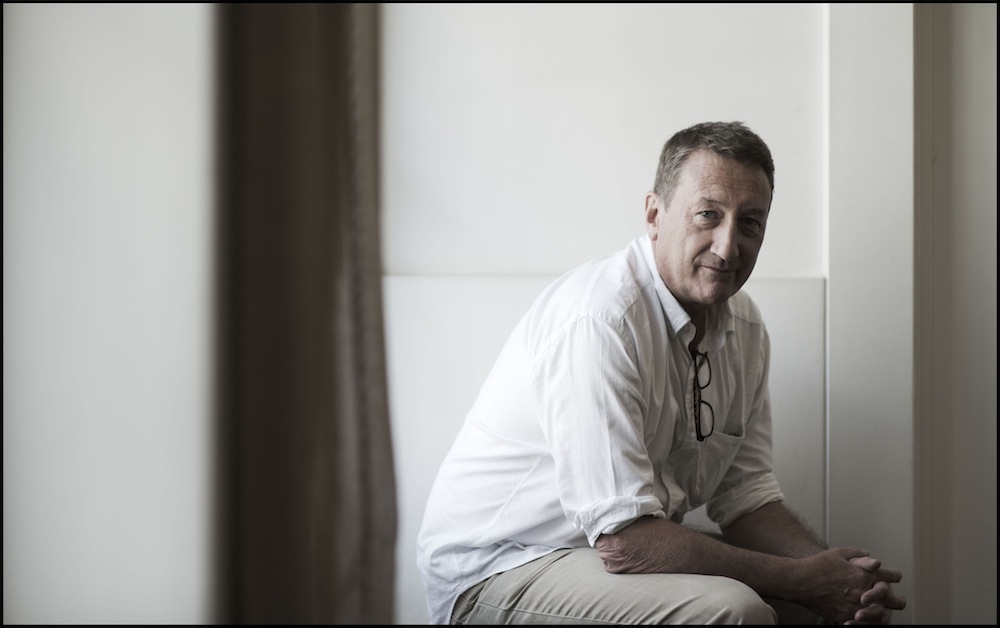
ABOVE: STEVEN KNIGHT. PHOTO COURTESY OF BAFTA.
In 1972, just before his championship match against reigning Russian chess grandmaster Boris Spassky, Bobby Fischer told reporters, “I don’t believe in psychology. I believe in good moves.” He had been accused of resorting to mind games to beat his nemesis by remaining in the United States while Spassky awaited his arrival in Reykjavik, the setting for their face-off. The line is the only excerpt of Fischer’s recorded dialogue that screenwriter Steven Knight incorporated into his script for Pawn Sacrifice, a new biopic starring Tobey Maguire as the legendary American chess player. Fischer’s reputation precedes him even nearly 50 years on; the young, unassuming New Yorker who, by challenging one man to a chess match, took on the whole of the Soviet Union.
Knight described writing his screenplay, too, as a chess match of sorts. He writes early in the morning, allowing the work to totally absorb him. “The reality does take a step back,” he says of his writing process. “There have been times when I’ve shaved twice in the same morning because I’ve forgotten I’ve shaved already,” he continues. “I’m just thinking about the plot; I’m not thinking about what I’m doing.” Knowing who would fill the lead role—Maguire first proposed the concept for the film—allowed Knight to write with a clear vision in mind.
Fischer grew up in a single-parent household raised by a communist mother. His personal conflict with her found an outlet the scaled-up East-versus-West conflict of the Cold War. In his screenplay, Knight juggles the larger political considerations, as well as the seesawing interactions between Fischer and those closest to him. (At numerous points, he either fires his closest advisors or they quit, only to come back together again. The game’s closest parallel is a nasty case of Stockholm Syndrome.) “The amazing thing about this story is that it obeys all the rules of drama,” Knight explains.
Though he’s perhaps best known for his collaborations with Tom Hardy (including Locke, the hour-and-a-half long odyssey that plays out over several phone conversations in a car, and Peaky Blinders, the BBC period drama about a Birmingham gang in the 1920s) and as one of the creators of Who Wants To Be A Millionaire, Knight says he has dabbled in most writing disciplines. He’s found his niche in screenplays, for which he’s been nominated for an Oscar (for Dirty Pretty Things, 2003) and several BAFTAs. We recently spoke with Knight over the phone to discuss the making of Pawn Sacrifice and Bobby Fischer’s peculiar phobia.
KATHERINE CUSUMANO: Did you follow the chess tournament back when it was actually happening?
KNIGHT: I was a kid, but I remember being startled by the fact that the BBC News focalized for about a week on chess. Just the most remarkable moment in history, when the Cold War, which was highly charged, was suddenly being fought by these two men opposite each other in a very ancient way.
CUSUMANO: Is there any reason that this story is being told now? What do you get out of revisiting Bobby Fischer’s legacy in 2015?
KNIGHT: I suppose you could say that it’s a time that there’s a clash of ideologies, similar to the Cold War. I think that a story like this has been waiting to be told, and I think it’s a fresh look at the whole earth-shattering business of the collapse of the Soviet Union.
CUSUMANO: Writers often talk about “killing your darlings”—that idea that in order to make a piece of writing stronger as a whole, you have to sacrifice some of the parts that you love the most or fought hardest for. Do you have any moments like that for Pawn Sacrifice? Lines or scenes that you couldn’t bear to cut but you had to anyways?
KNIGHT: Too many to even contemplate. It’s always painful, but there were scenes with Donna the prostitute. That whole scenario was bigger at one point, and that had to go because, as I’m sure every writer knows, in the end, no matter how good you think a scene is, if it’s not moving the story forward, it’s very vulnerable.
CUSUMANO: What was the most fascinating thing that you learned in your research for the film?
KNIGHT: Okay—the weirdest one, that Bobby Fischer was afraid of Maraschino cherries, which is pretty ridiculous. But the relatively poorly documented element was when he was growing up and his mother was a communist, the level of surveillance that was carried out on communists in America in the ’50s. The air of paranoia partly contributed to Bobby’s own paranoia, I think.
CUSUMANO: Were the elements of his personality that are such a big part of the film well-publicized at the time? Did people know about his paranoia, for example?
KNIGHT: Not really. At the time, even though it is the ’70s, people weren’t so ready to attach a label to certain forms of behavior. He was paranoid, and people saw and knew that, but I think he had all sorts of conditions from when he was a child that became a vicious circle. I think his oddness as a person, the more he was like that, the more he was isolated from the people. The more isolated he became, the more he retreated into chess. The further he went into chess, the more his oddness was exacerbated. So in the end, his world was chess. That was it. There was no real outside.
CUSUMANO: You’ve written some very ambiguous heroes, from Tommy Shelby to Ivan Locke—even Bobby Fischer fits into this quite well. Though it would be pretty easy to cast them as the bad guy, the camera still really identifies with them. You want Bobby to win; you want Tommy to succeed. Does something draw you to that kind of character?
KNIGHT: Yeah, I think people are drawn to characters that break the rules. I think there is something about a good person doing bad things for what they consider to be a good reason. Then the battle is on to almost prove to the audience that it’s justified. How far can you go with that? How far can that character go before people won’t accept it? Trying to walk to edge of that line is a challenge.
CUSUMANO: Having worked on writing pieces that are of your own devising—you created and wrote Peaky Blinders, for example—what’s it like working on a project that isn’t totally yours, where you’re approached with an idea?
KNIGHT: There’s lots of different ways of writing stuff and lots of different mindsets to have, but I think when it’s your own creation, it’s more pleasurable because you have total control. This is almost a halfway house between a studio commission and an original, because I felt so strongly about the material and story. Sometimes you take something because it’s an offer and it’s big and it’s good money and you have to absolutely respect that process, because it’s not easier.
CUSUMANO: I wanted to talk about Peaky Blinders a little bit as well because the third season is coming up.
KNIGHT: It is! I’m just finishing the final episode right now, and we start shooting in the end of September. I think the third series is going to surpass the first two. It feels really strong.
CUSUMANO: How do you create a narrative arc not knowing how the show will fare from season to season? Do industry concerns and whether the show will get picked up again for another season play into how you structure the narrative?
KNIGHT: The only way to do it is to assume it’s going to go on forever. What you have to do is say, “This is real, and so the character’s not expecting to die.”
CUSUMANO: Do you have an end point in mind?
KNIGHT: I’ve always said—and this is the vanishing point, which I don’t think will ever happen—the story of the Peaky Blinders ends on the first air-raid siren in Birmingham at the start of the Second World War.
CUSUMANO: Is there going to be another time jump between the second and third seasons?
KNIGHT: Yep, two years.
CUSUMANO: Okay, so there’s a bit of a ways to go, chronologically.
KNIGHT: I know, if we do two years every time, it’s going to be series 24 or something like that. [laughs] So I think we’ll have to jump forward a bit.
CUSUMANO: Your next film is going to be Burnt, with Bradley Cooper and Alicia Vikander. What made you want to do that screenplay?
KNIGHT: I love cooking and kitchens. There’s something about a kitchen that is very pre-modern, because it is absolute tyranny. One person is totally in charge, and so in the heat of that kitchen you get all sorts of odd personal relationships and dramas. It’s just a great world, and I wanted to explore it. It’s not so much true now, but the grimy reality of the kitchen made me want to do desperate things. You see the façade, the outside, the public part, and then you just walk through one door marked “Staff Only” and you’re in a different universe.
CUSUMANO: Do you have any experience in the culinary industry?
KNIGHT: Yeah, I was a dishwasher in Canada. I worked in kitchens for a little while at the very, very, very bottom of the hierarchy, to the extent where you’re invisible. You just watch everything go on.
CUSUMANO: You get such a good feel for what goes on from there because you’re the unnoticed one.
KNIGHT: Yes, exactly. You’re like a ghost, or a fly on the wall.
CUSUMANO: Was there a moment when you realized writing was what you wanted to do?
KNIGHT: Very early, I think. When I was probably about 10 or 11, and I found it was simply something I could do. When you’re at school and you do something and you get praised for it, you think, “Oh, right, well I’ll do that.” From then on, I always thought I’d be a writer. I thought novels at first, and then I sort of naturally drifted into TV.
CUSUMANO: How would you describe a project that attracts you?
KNIGHT: True stories are always good because they’re so odd, and so unlikely. It’s always good to have a world that people don’t know about—a world that hasn’t yet been done. It’s like treading on fresh snow. You’re the first one there. It always feels good to be dealing with a period of history or a world that no one else has dealt with.
CUSUMANO: What sorts of things do you like to watch?
KNIGHT: I’m very bad at watching anything. I’m bad at going to theaters; I can’t watch my own stuff; I watch a lot of sports. When you’re watching, I find two things happen. You either watch a film and it’s really good and then you think, “Why can’t I do that?” Or you watch a film and it’s not good, and you think, “Why am I doing this?” So either way, it feels like being at work. I think that it’s not a bad thing to not be too versed in the vocabulary of cinema, because you start to think that certain things are allowed and not allowed.
CUSUMANO: Yeah, that makes sense. I think that when I’m writing something, it is invariably infused with whatever I’ve read most recently.
KNIGHT: It depends—if you’ve read something brilliant, it’s good. It’s good to look out the window and see what’s going on in the world.
PAWN SACRIFICE COMES OUT WEDNESDAY, SEPTEMBER 16.

